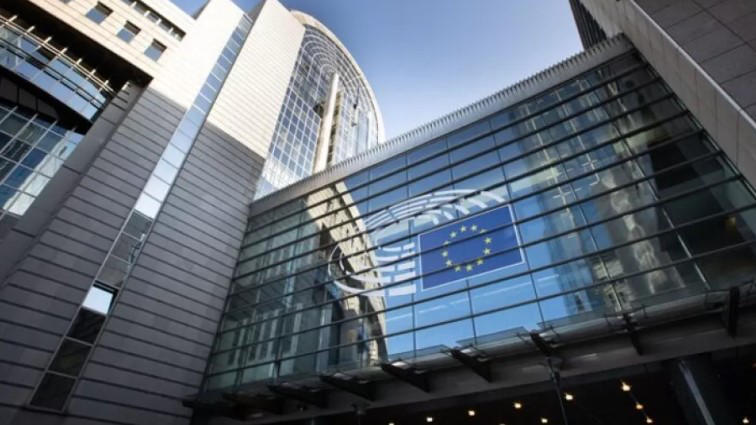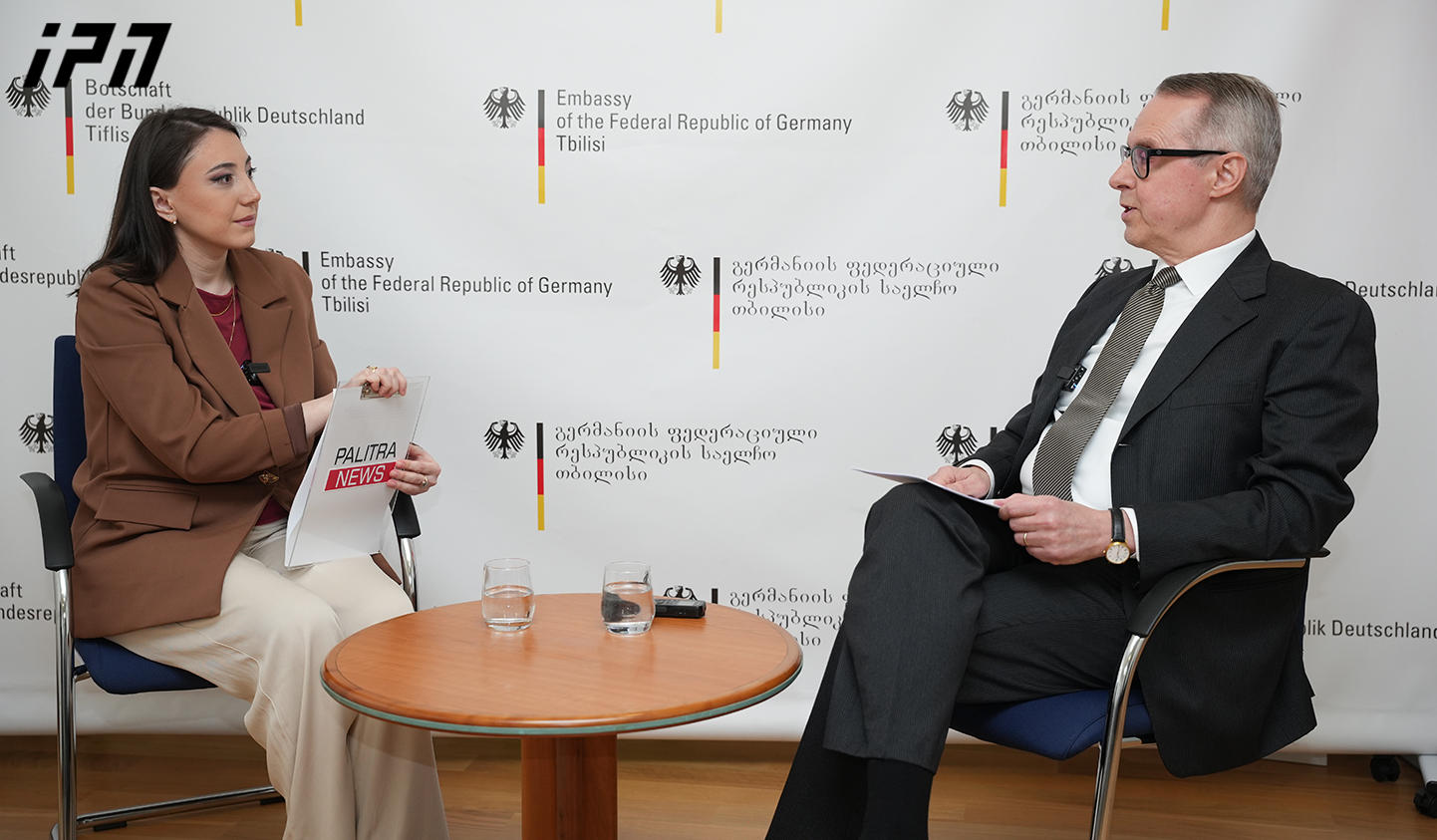European Parliament’s Foreign Affairs Committee passes draft report on Georgia with amendments

The European Parliament’s Foreign Affairs Committee has passed the draft report on Georgia with amendments. The document was supported by 55 MEPs, 14 voted against and 4 abstained.
The final version of the document approved by the committee has not yet been published on the European Parliament’s website, although the initial version of the draft report, presented by MEP Rasa Juknevičienė, is known.
According to the draft document, the European Parliament expresses deep regret over the fact that the ruling Georgian Dream party failed to use the historic opportunity granted to Georgia, as a candidate country, to progress on its European integration path, noting that European integration is supported by the majority of the population; underlines Georgia has not moved forward, and has in fact even regressed, on the key provisions of the nine steps indicated by the Commission, despite the authorities’ claims to the contrary; stresses that Georgia’s EU integration process has effectively been suspended as a result of the continued democratic backsliding in the country and the adoption of anti-democratic legislation that runs counter to the values and principles upon which the EU is founded;
The European Parliament “Stresses the need for an immediate and comprehensive audit of the EU’s policy towards Georgia given the ongoing democratic backsliding in the country; calls, in this regard, on the Commission to review the implementation of the EU-Georgia Association Agreement in the light of the breach of Georgia’s obligations regarding the general principles laid down in Article 2, namely respect for democratic principles, human rights and fundamental freedoms; reiterates that non-fulfilment of these obligations may result in the conditional suspension of economic cooperation and the privileges afforded by the Agreement; 4. Deplores the fact that high-level ruling party officials, members of parliament and government-affiliated media regularly spread manipulative narratives, disinformation and conspiracy theories about the EU and European integration;
Underlines the role that Bidzina Ivanishvili has played in the deterioration of the political process in Georgia by enabling democratic backsliding and by acting against the country’s constitutionally declared interests of Euro-Atlantic integration; calls, therefore, for immediate and targeted personal sanctions to be introduced against him, his family members and his companies and for his known assets in the EU to be frozen;
Reiterates its position that the settlement of the current political and constitutional crisis in Georgia can only be achieved by way of new parliamentary elections, which should be held in the next few months in an improved electoral environment, overseen by an independent and impartial election administration and monitored through diligent international observation to guarantee a genuinely fair, free and transparent process;
Stresses that it does not recognise the self-proclaimed authorities established by the Georgian Dream party following the rigged parliamentary elections of 26 October 2024; regrets the fact that the Parliament of Georgia is a one-party parliament, which is incompatible with a pluralistic parliamentary democracy;
Underlines that the policy of non-recognition of the legitimacy of the one-party parliament and the president appointed by it should continue until there is a tangible change in the political course of Georgia; calls for the EU’s and the Member States’ representatives and members of parliament to refrain from meetings with representatives of the regime, starting with the current de facto president; continues to recognise Salome Zourabichvili as the legitimate President of Georgia and representative of the Georgian people;
Condemns the continuing and deliberate destruction of the environment for Georgia’s vibrant civil society, with the adoption of restrictive legislation on the transparency of foreign influence, threats, and stigmatisation by the authorities; calls on the authorities to immediately cease the intimidation, threats and physical assaults against civil society representatives, political leaders, civil activists and journalists in Georgia; stresses the urgent need to support Georgia’s civil society and independent media in the light of the growing repression and the suspension of the activities of the US Agency for International Development (USAID), and therefore asks the Commission to increase support without delay;
Reiterates that the measures taken by the EU so far do not reflect the severity of the situation in Georgia; stresses that the absence of unanimity among the Member States should not prevent those willing to take appropriate and effective measures from doing so; calls on the EU’s leadership to rally like-minded Member States to take coordinated action and thereby surmount the political obstacles to adopting EU-wide sanctions;
Calls for the EU and its Member States to introduce, on a bilateral and coordinated basis, personal sanctions against key political leaders, officials and the regime’s enablers in the administration, business, media, justice system and law enforcement agencies, who are responsible for democratic backsliding, electoral fraud, human rights violations and the persecution of political opponents and activists; welcomes the introduction of bilateral sanctions by Lithuania, Estonia, Latvia, Czechia and Germany;
Welcomes the Council’s decision to suspend visa-free travel for Georgian diplomats and officials as a first step in response to the persistent negative developments in Georgia; reiterates its call on the Commission and the Council to review Georgia’s visafree status, with the possibility of suspending it if the relevant benchmarks and standards on democratic governance and freedoms are not met;
Regrets that Georgia has made no progress on implementing Commission’s recommendations on foreign, security and defence policy and that the level of Georgia’s alignment with the EU’s common foreign and security policy remains remarkably low, demonstrating its lack of commitment to European integration; notes that Georgia has not aligned with the vast majority of sanctions against Russia, Belarus and Iran, but has cooperated closely with the EU to prevent sanctions circumvention; stresses that the ruling party is undoing decades of progress towards European integration and NATO membership and is alienating its allies, who had supported it throughout the process;
Is deeply concerned about the Georgian Dream government’s collaboration and rapprochement with Russia, despite Russia’s creeping occupation of Georgia’s territory; deplores Georgian Dream’s promotion of Russian disinformation and manipulation;
Notes that support from the European Peace Facility, worth EUR 30 million, was suspended in 2024 in response to the democratic backsliding in Georgia and that no support is planned for 2025;
Instructs its President to forward this resolution to the Council, the Vice-President of the Commission / High Representative of the Union for Foreign Affairs and Security Policy, the Commission, the governments and parliaments of the Member States, the Council of Europe, the Organization for Security and Co-operation in Europe and the self-appointed authorities of Georgia.”
